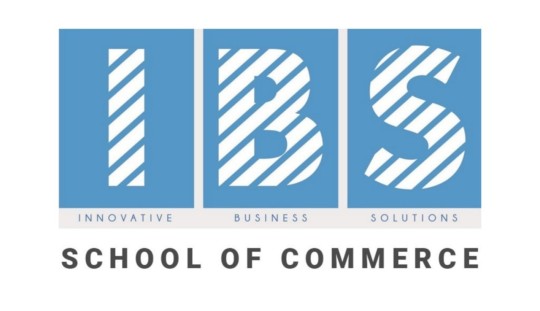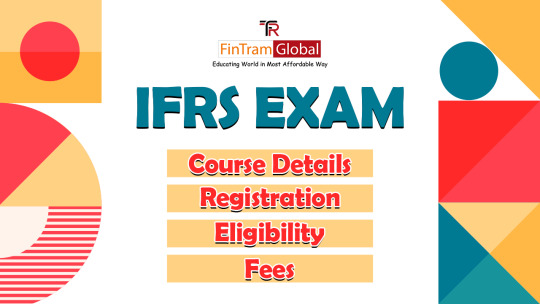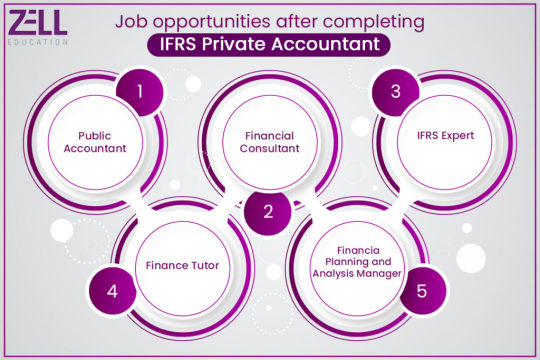#acca ifrs
Explore tagged Tumblr posts
Text

2 notes
·
View notes
Text
A Team Commerce Academy provides top-notch ACCA UK courses in India, combining flexibility and expertise through their ACCA online coaching in India. They empower students with practical knowledge and industry-relevant skills to excel in their careers. Visit their website to explore structured courses, experienced faculty, and a pathway to global recognition in accounting and finance.
0 notes
Text
IFRS Certification
A specialist certification known as IFRS certification attests to a thorough comprehension of International Financial Reporting Standards (IFRS) and how they are used in international financial reporting. Accounting professionals, auditors, finance managers, and other stakeholders engaged in the preparation and analysis of financial statements are the target audience for this qualification. It addresses important IFRS subjects such financial statement presentation, revenue recognition, financial instruments, and lease treatment. Acquiring an IFRS certification guarantees adherence to international financial reporting standards, boosts professional reputation, and improves job possibilities. This certification gives people the abilities to satisfy changing international accounting standards as businesses embrace IFRS more and more for transparency and comparability.

#ifrs#ifrs course#ifrs exam#ifrs fees#ifrs eligibility#ifrs certification#ifrs diploma acca#diploma in ifrs
0 notes
Text
1 note
·
View note
Text
IBS Training Institute: Your Gateway to International Accounting Standards and Practices

In the globalized world of finance, accountants are expected to be proficient in international standards and practices. Whether it's the International Financial Reporting Standards (IFRS) or U.S. Generally Accepted Accounting Principles (GAAP), understanding these standards is crucial for accountants working in multinational corporations or aspiring to join global firms. As businesses expand across borders, there is a growing demand for professionals who can navigate these complex accounting frameworks. That’s where the role of a specialized training institute like IBS becomes essential.
Located at the heart of Edappal, IBS Training Institute offers a robust curriculum designed to equip aspiring accountants with the skills they need to thrive in a globalized accounting environment. IBS has garnered a reputation for being the CMA USA institute in Edappal, helping students excel in internationally recognized certifications and prepare for the competitive accounting industry. Through a combination of theoretical learning and hands-on practice, IBS ensures its students are ready to meet the challenges posed by international accounting standards.
Why International Accounting Standards Matter
Accounting isn’t just about numbers—it’s about ensuring those numbers are transparent, accurate, and comparable across the world. As global economies continue to integrate, accounting standards play a vital role in harmonizing financial reporting across countries. For instance, IFRS has been adopted by more than 140 jurisdictions globally, including the European Union and various Asian, African, and Latin American countries.
For accountants, understanding these international frameworks opens doors to opportunities not just within their home country but globally. Many multinational corporations prefer or require accountants with IFRS knowledge as they operate in multiple jurisdictions with varying legal and regulatory frameworks. Furthermore, international certifications such as the Certified Management Accountant (CMA USA) and the Association of Chartered Certified Accountants (ACCA) prepare candidates to meet these demands by focusing on global accounting standards and business practices.
Comprehensive Curriculum at IBS Training Institute
IBS Training Institute provides specialized programs that focus on various international accounting standards, ensuring students have a solid foundation in the concepts, principles, and applications that are vital for their careers. The institute offers a broad range of courses, including the widely recognized CMA USA and ACCA certifications, which are globally respected in the accounting profession.
Additionally, the institute offers specialized training in SAP logistics in Edappal, a key component for professionals who wish to expand their expertise in enterprise resource planning (ERP) systems. SAP ERP is an essential tool used by organizations to integrate various business processes, including finance, logistics, and operations, and proficiency in this system is a huge advantage for anyone looking to work in international business environments.
The curriculum at IBS is designed not only to provide technical accounting knowledge but also to offer real-world case studies and projects that mimic the challenges faced by accountants in multinational corporations. From understanding the intricacies of IFRS to mastering ERP systems like SAP, IBS offers a well-rounded education that prepares its students for the complexities of modern-day accounting.
Hands-On Training and Expert Faculty
One of the most distinguishing features of IBS Training Institute is its commitment to practical learning. The institute recognizes that theoretical knowledge alone isn’t enough to excel in a global accounting career. Therefore, IBS emphasizes hands-on training through workshops, real-life case studies, and simulations that closely mimic the situations accountants encounter in international firms.
The faculty at IBS comprises seasoned professionals with years of experience in the accounting and finance sectors. Many of the instructors hold advanced degrees and international certifications such as CMA USA, ACCA, and IFRS, giving them a deep understanding of the challenges and opportunities in global accounting. They not only teach the technicalities of accounting standards but also mentor students on how to apply these principles effectively in real-world scenarios.
International Certifications at IBS: CMA USA and ACCA
Obtaining an international accounting certification is one of the most effective ways to distinguish yourself in the competitive job market. IBS Training Institute is a leading provider of preparatory courses for both CMA USA and ACCA certifications. These certifications are recognized worldwide and are often required by multinational corporations and global accounting firms.
CMA USA: The Certified Management Accountant (CMA) designation is highly valued in the field of management accounting. IBS has established itself as the best institute for CMA USA in Edappal, offering comprehensive study materials, expert faculty guidance, and mock exams to prepare students thoroughly. The CMA certification covers key areas such as financial planning, analysis, control, decision support, and ethics—skills that are critical for accountants in international roles.
ACCA: IBS also offers preparatory courses for the Association of Chartered Certified Accountants (ACCA) exam. ACCA is another globally recognized qualification that focuses on financial management, tax, audit, and law, preparing candidates for a variety of roles in accounting and finance.
Global Opportunities for IBS Graduates
One of the major advantages of studying at IBS is the breadth of opportunities available upon graduation. The global focus of the curriculum ensures that students are well-prepared to work not just in India but in international markets as well. With a strong foundation in IFRS, SAP ERP, and other global accounting practices, IBS graduates are equipped to work in multinational corporations, global consulting firms, and financial institutions across the world.
IBS’s connections with industry leaders, along with its reputation as a premier institute for international accounting certifications, also help students land internships and job placements with top firms. Many of the institute’s alumni have gone on to build successful careers in leading multinational companies, and IBS continues to support its students even after they graduate by providing ongoing career development resources and networking opportunities.
Conclusion: IBS as a Launchpad for Global Accounting Careers
The world of accounting is evolving, with a strong focus on international standards, global business practices, and cutting-edge technology. IBS Training Institute stands at the forefront of this transformation, providing students with the skills and certifications they need to succeed in the global accounting arena. Whether you're looking to become certified in CMA USA, gain proficiency in SAP ERP systems, or master IFRS, IBS offers the training and support necessary to achieve your career goals.
With its focus on practical learning, expert faculty, and a curriculum aligned with global standards, IBS is not just an educational institute—it's a launchpad for a successful international accounting career. If you’re ready to take your accounting skills to the next level and unlock global opportunities, IBS Training Institute is your gateway to success.
#Cma usa institute#Best institute for cma#Best logistics institute#edappal#Malappuram#Kerala#Sap logistics institute#Acca institute#SAP R/3 institute#IFRS institute#Logistics and supply chain institute#logistics courses#Good campus for cma usa
0 notes
Text
Learn About IAS 1 in ACCA IFRS Certificate Online Classes

A great option for financial professionals looking to improve their abilities and future chances is the ACCA IFRS certification. This certification includes IAS 1-Presentation of Financial Statements as one of its main topics. Anyone working in financial reporting needs to understand IAS 1, and doing online diploma programs in IFRS can provide you the thorough understanding you need. We'll discuss the relevance of IAS 1 in this blog post and how taking online classes to earn your ACCA IFRS certificate will help you become proficient in this crucial standard.

What is IAS 1?
The International Accounting Standard 1, or IAS 1, describes the general guidelines for financial statement presentation. It creates the rules for their organization and specifies the minimal standards for their content.
Key Elements of IAS 1
Full Set of Financial Statements: In accordance with IAS 1, all financial statements must be presented, including:
Financial Position Statement (Balance Sheet)
Profit/Loss Statement and Other Comprehensive Income
A Statement of Adjustments to Equity
Cash Flow Statement
Notes, including an overview of important accounting principles and additional clarifying details
Fair Presentation and Compliance: An entity's cash flows, financial performance, and financial condition must all be correctly represented in financial statements. A fair presentation of the financial accounts is ensured by IFRS compliance.
Consistency of Presentation: Until there is a substantial change in the nature of the entity's operations or a new IFRS standard necessitates a change, the presentation and categorization of items in the financial statements should be constant from one period to the next.
Materiality and Aggregation: The financial statements should include a separate presentation of each substantial class of related items. Unless they are irrelevant, items with different types or purposes should be shown separately.
Comparative Information: IAS 1 mandates that for all amounts reported in the financial statements of the current period, comparable information on the prior period be presented.
Why Enroll in ACCA IFRS Certificate Online Classes?
Comprehensive Coverage of IAS 1
Online courses for the ACCA IFRS certificate cover IAS 1 in great detail, ensuring that you are familiar with the nuances of financial statement presentation. The lectures cover every facet of the standard, providing useful perspectives and real-world implementations.
Expert Instruction
Online diploma programs in IFRS are frequently instructed by seasoned experts with in-depth understanding of IFRS and its applications across a range of industries. Their knowledge guarantees that you will receive excellent tuition, and they can answer any questions you may have.
Flexible Learning
Working people can more easily manage their studies and careers with the flexibility of online programs, which allow them to learn at their own speed. This adaptability enables you to review challenging subjects and confirm your comprehension as necessary.
Practical Applications
You can apply IAS 1 concepts to real-world situations by using the case studies and practical exercises that are frequently included in the courses. Taking a practical approach guarantees that you are equipped to manage financial reporting responsibilities in your work capacity.
Career Advancement
Obtaining an ACCA IFRS certification might lead to new job chances and improve your credibility. Professionals with a thorough understanding of IFRS are highly valued by employers, and holding this certification can help you stand out in the job market.
Conclusion
For finance professionals involved in financial reporting, mastering IAS 1 is imperative. By enrolling in online ACCA IFRS certificate courses, you may gain a comprehensive understanding of this crucial standard and the skills you need to succeed in the workplace. Online diploma in IFRS programs are a great investment in your professional development because of their thorough material, knowledgeable instruction, flexible scheduling, and real-world applications.
Enroll in the ACCA IFRS certification program right away to start your journey towards becoming an IAS 1 expert and improving your job prospects!
Resource: https://www.mindcypress.com/blogs/finance-accounting/learn-about-ias-1-in-acca-ifrs-certificate-online-classes
0 notes
Text

IFRS Course Eligibility
The IFRS Course equips you with the knowledge and skills needed to prepare, interpret, and analyze IFRS-compliant financial statements. In this comprehensive guide, we’ll delve deeper into this global accounting dictum and dig into the course details, registration, eligibility, and fees for the IFRS Exam.
Visit us- https://fintram.com/ifrs-exam/
#acca classes#accaglobal#acca coaching#economy#finance#acca course#entrepreneur#acca online#diploma in ifrs
0 notes
Text
youtube
IFRS Diploma Acca
Get started on the path to financial fluency with the ACCA IFRS Diploma. Your passport to understanding International Financial Reporting Standards (IFRS) and deciphering the intricate global financial environments is this diploma. Immerse yourself in a curriculum that has been painstakingly created by professionals to give you the tools you need to handle the complexities of financial reporting. The ACCA's IFRS Diploma is your pass ticket to a world where financial terminology is second nature, not merely a credential. With the IFRS Diploma from ACCA, you may advance your professional development, broaden your knowledge of finance, and become one of the few professionals who speaks the universal language of finance.
0 notes
Text
youtube
best ifrs certification course
Embark on a journey to financial excellence with the best IFRS certification course. Master International Financial Reporting Standards (IFRS) through comprehensive modules, real-world case studies, and expert guidance. Elevate your career, enhance financial acumen, and gain a globally recognized certification. Seize the opportunity to navigate the complexities of financial reporting with confidence and precision. Your path to financial mastery starts here.
#diploma in ifrs acca#ifrs course eligibility#ifrs course syllabus#ifrs diploma fees#ifrs diploma syllabus#Youtube
0 notes
Text

Master the complex world of IFRS with out exclusive ACCA Dip-IFRS Course!
Stay ahead in Accounting by enhancing your knowledge with globally recognized standards...
Join us now & unlock unlimited career opportunities.
To know more visit www.fintram.com
Contact us on - +91 8882677955, +91-7303457955
Subscribe to our YouTube Channel https://www.youtube.com/c/FinTramGlobal/
#ifrs#acca#accaclasses#accaonline#ifrs online#accafaculty#accaindia#bestaccaclasses#fintramglobal#accafintram#cpa#accaonlinefaculty
0 notes
Text
International Financial Reporting Standards (IFRS) are a set of global accounting standards used by companies to prepare and present their financial statements. IFRS has become the global language of business, and many companies across the world are adopting these standards.
0 notes
Text

Diploma in IFRS Course ACCA (U.K.) 2023: IFRS Certification
Diploma in IFRS from ACCA (U.K.) is well-known in India and across the world. Choose Eduyush! Our IFRS courses also include ACCA-approved BPP books and self-study materials on worldwide financial reporting standards in addition to live sessions. Our course charge, which includes test fees, will be between INR 27K and INR 29K.
0 notes
Text
0 notes
Text
IFRS Eligibility
A basic understanding of accounting or finance is usually required to be eligible for IFRS (International Financial Reporting Standards) courses and certifications. A background in accounting, finance, or business studies—such as a degree or professional certificate in these areas—is excellent for applicants. Candidates with real-world financial reporting or auditing expertise are frequently given preference for advanced certifications such as the Diploma in IFRS. Nonetheless, some courses could provide a starting point for those who already know the fundamentals of accounting, enabling them to progressively develop their IFRS competence. Certain prerequisites may also be established by the course providers based on the program level. Before enrolling, potential candidates should study the eligibility requirements to make sure they meet the requirements.

0 notes
Text
Frequently asked questions (FAQ) on IFRS!

Introduction
Accounting is the backbone of the business financial world. The aim of financial reporting is to understand the business through the numbers and facts. Worldwide accounting practice was highly diverse and meaningfully comparing financial statements of entities located in different countries was very difficult. Considering the increasing trend of globalisation across the world, harmonisation in the accounting was necessary.
International Financial Reporting Standards, commonly called IFRS, are accounting standards issued by the IFRS Foundation and the International Accounting Standards Board. In simple words IFRS are a set of accounting rules for how information should be gathered and presented in financial reports.
They constitute a standardised way of describing the company’s financial performance and position so that company financial statements are understandable and comparable across international boundaries. They are particularly relevant for companies with shares or securities publicly listed.
Why (IFRS) International Financial Reporting Standards
Accounting & financial reporting is vital for economies to grow and prosper.
With the globalisation, difficulty in undertaking cross border transactions, due to difficulty in understanding financial statements of other entity.
To bring harmony in the accounting language, there was need of reliable, transparent and can be comparable reporting framework.
Considering this need. IASB and its predecessor organisation IASB introduced a set of high-quality reporting standards which are comparable across the globe, called IFRS.
For more details, watch the video at the provided link: https://youtu.be/vV_Ga6DpJBc
How are IFRS standards developed?
IFRS Accounting Standards are developed through a formal system of due process and broad international consultation involving accountants, financial analysts and other users and regulatory bodies from around the world.
The overall agenda of the IASB will initially be set by discussion with the IFRS Advisory Council. The process for developing an individual standard would involve the following steps:
01:
During the early stages of a project, the IASB may establish an Advisory Committee to give advice on issues arising in the project. Consultation with the Advisory Committee and the IFRS Advisory Council occurs throughout the project.
02:
IASB may develop and publish Discussion Papers for the public comment.
03:
Following the receipt and review of comments, the IASB would develop and publish an Exposure Draft for public comment.
04:
Following the receipt and review of comments, the IASB would issue a final IFRS Accounting Standard.
The period of exposure for public comment is normally 120 days. However, in exceptional circumstances, proposals may be issued with a comment period of 30 days. Draft IFRS interpretations are normally exposed for a 90-day comment period.
Is IFRS mandatory for financial reporting in India?
India made a commitment to G20 nations in their summit in 2009 towards convergence to IFRS. Accordingly, India decided to adopt a reporting framework similar to IFRS i.e., Ind AS, Indian Accounting Standards Converged with IFRS (conversion approach). Ind AS to be adopted in a phased manner from the financial year 2016-17 with comparatives for the year financial year 2015-16 for certain class of companies. Currently all publicly listed companies (including NBFCs) and companies in the process of listing along with their subsidiaries, JV and associates are covered within the ambit of Ind AS. Further, private limited companies with net worth of 250 crores or more along with their subsidiaries, JVs and associates are also required to comply with Ind AS.
Can private companies or small companies use IFRS?
Yes, private companies can choose to use IFRS in many jurisdictions. Small companies may also use IFRS depending on the jurisdictional requirements. Some countries may have separate guidelines or simplified standards for smaller entities, such as IFRS for SMEs (Small and Medium-sized Entities) as issued by IASB.
What is the salary range for professionals with IFRS expertise?
Salaries vary by country, experience, and role, but typically:
Entry-level positions (1-3 years of experience): INR 3 lakhs to 6 lakhs per year.
Mid-level positions (4-8 years of experience): INR 7 lakhs to 15 lakhs per year.
Senior positions (8+ years of experience, such as CFOs or IFRS consultants): INR 15 lakhs onwards.
Note: This is merely an indicative range, and actual salaries may differ depending on the skillset of a candidate.
At FinPro Consulting, we specialise in delivering training, GAAP Conversion Services and other consulting services related to financial reporting under IFRS, Ind AS and US GAAP. FinPro is also a Registered Learning Partner (RLP) with ACCA, UK and has conducted 31+ retail training batches for Diploma IFRS course.
Thank you reading the article and stay tuned to our next blog!
0 notes
Text
ACCA IFRS Course
https://fintram.com/dip-ifr/
Click the above link to learn more
0 notes